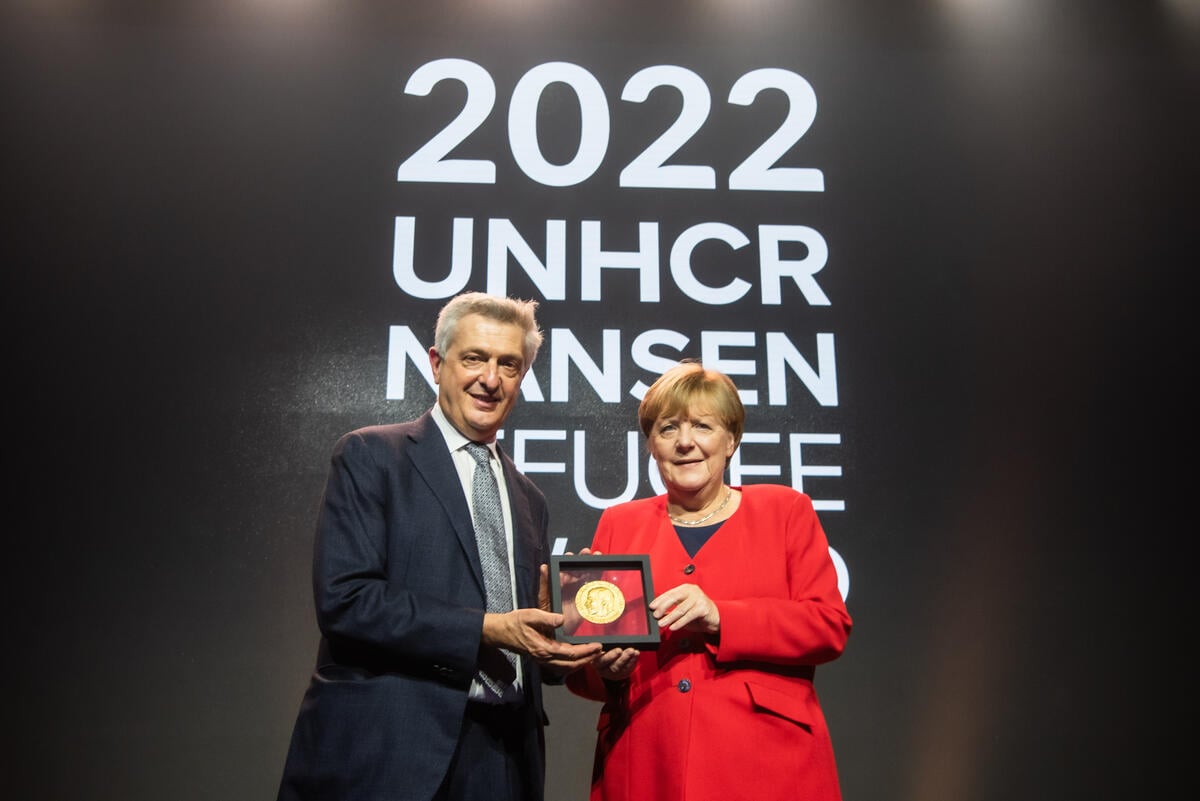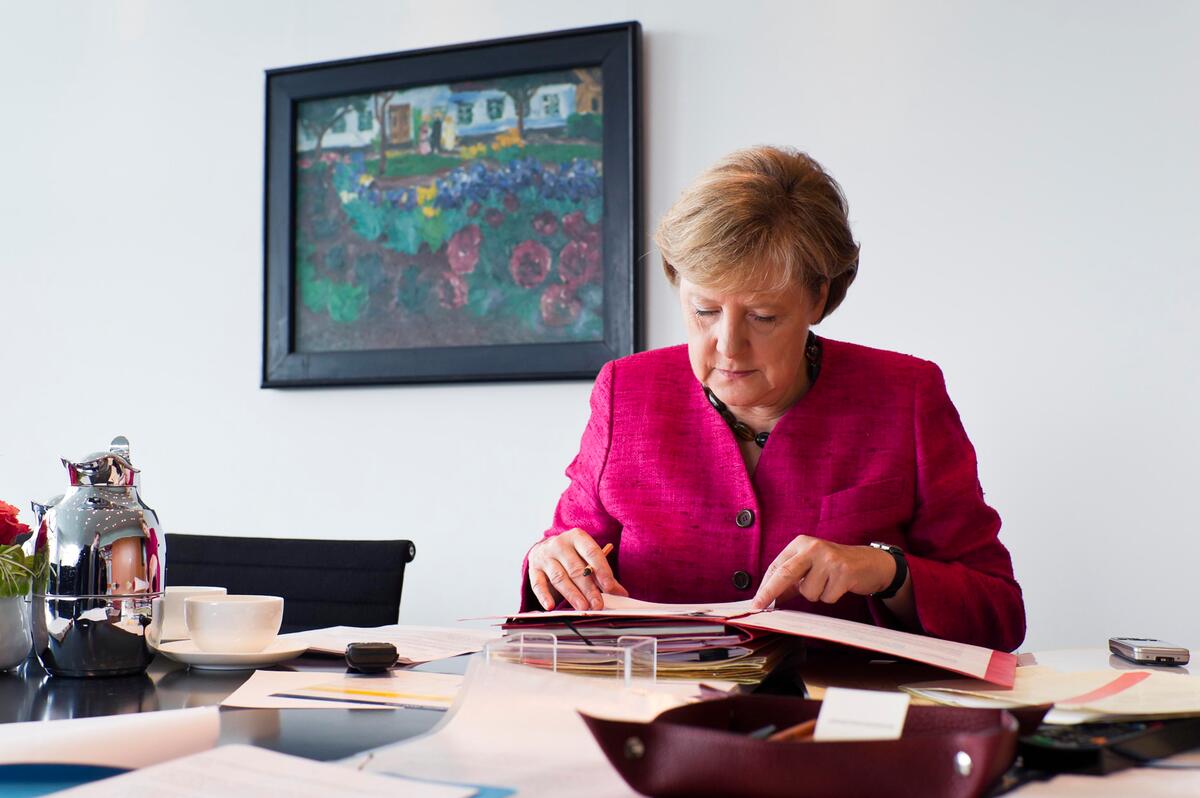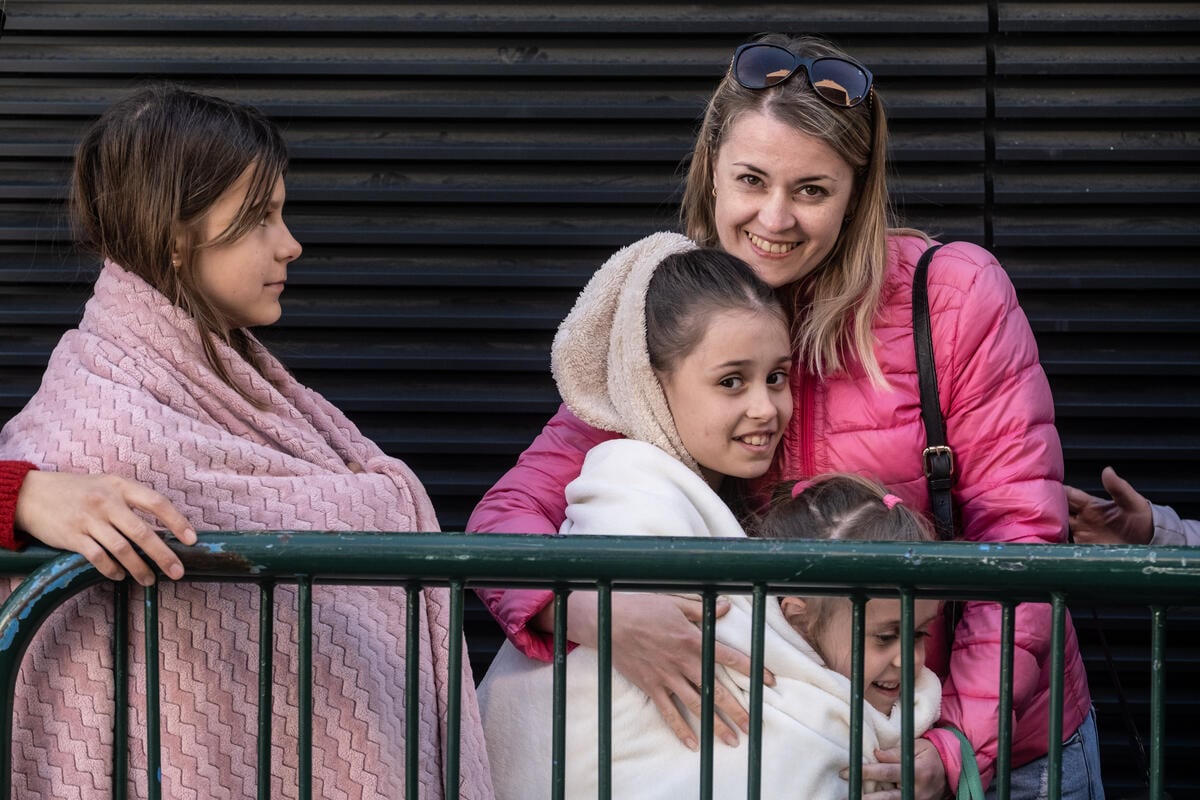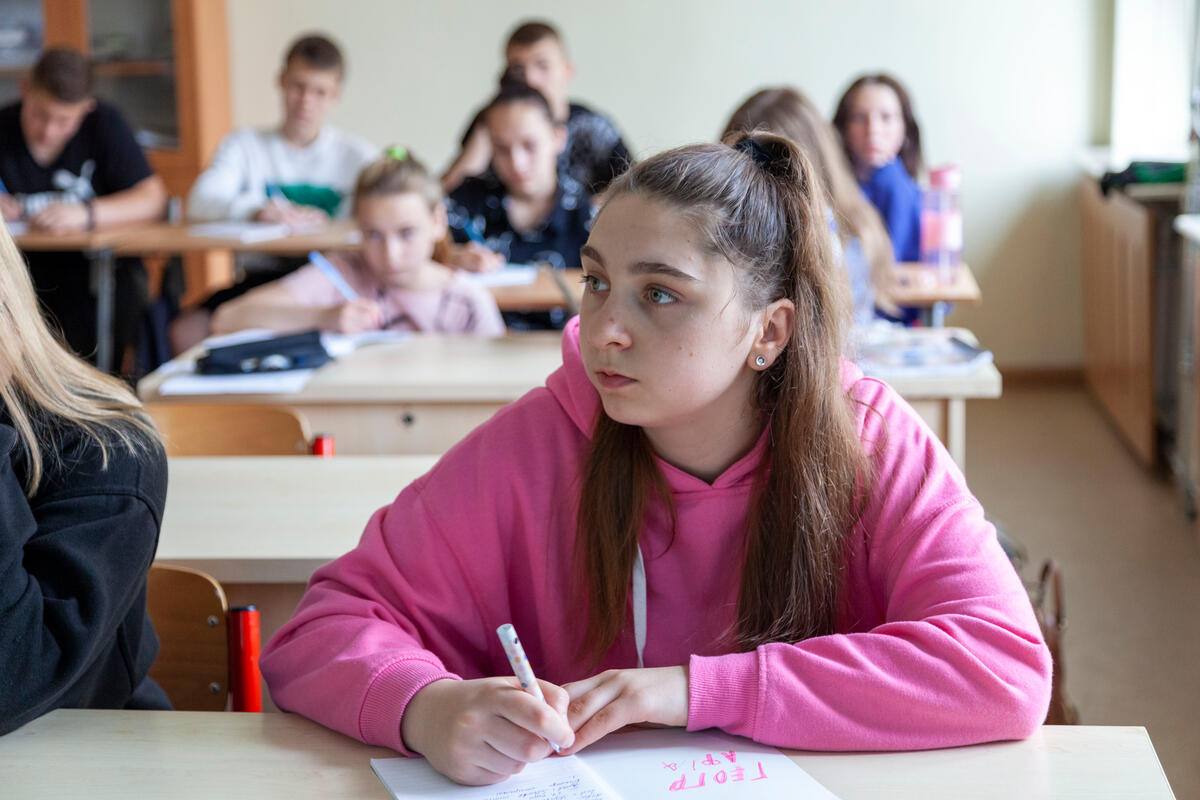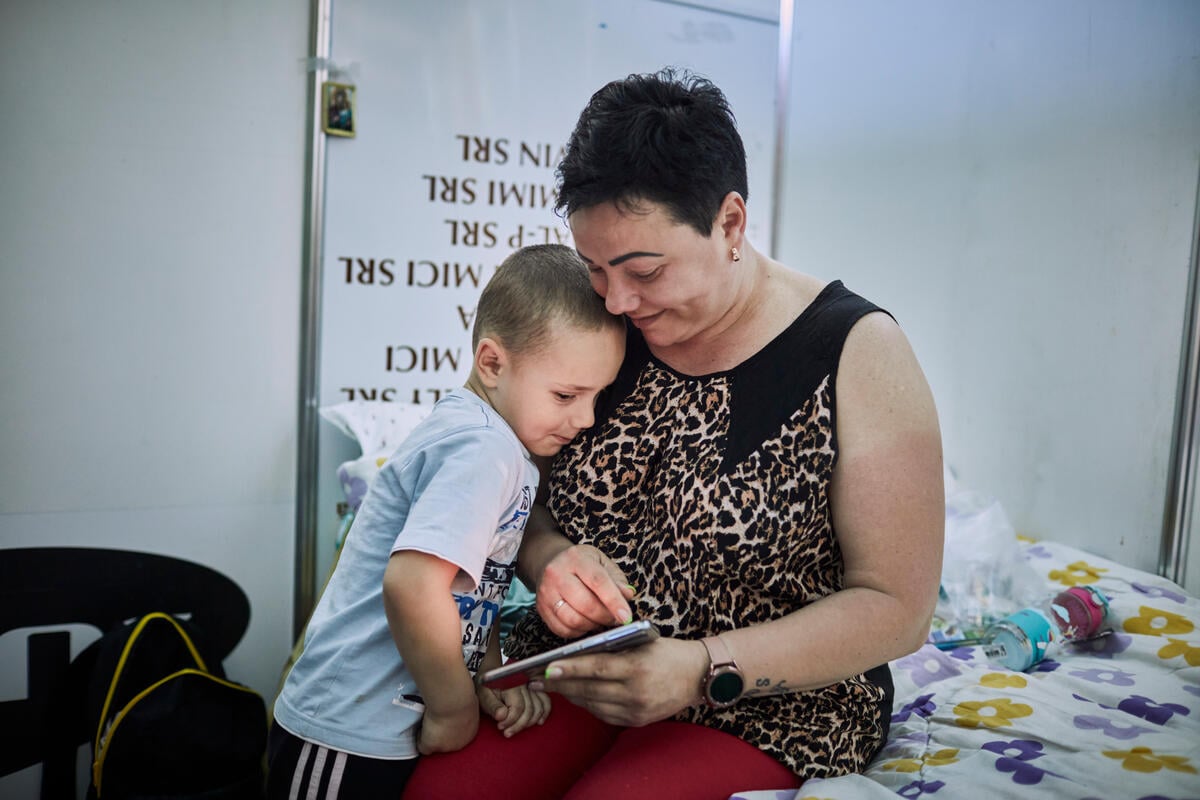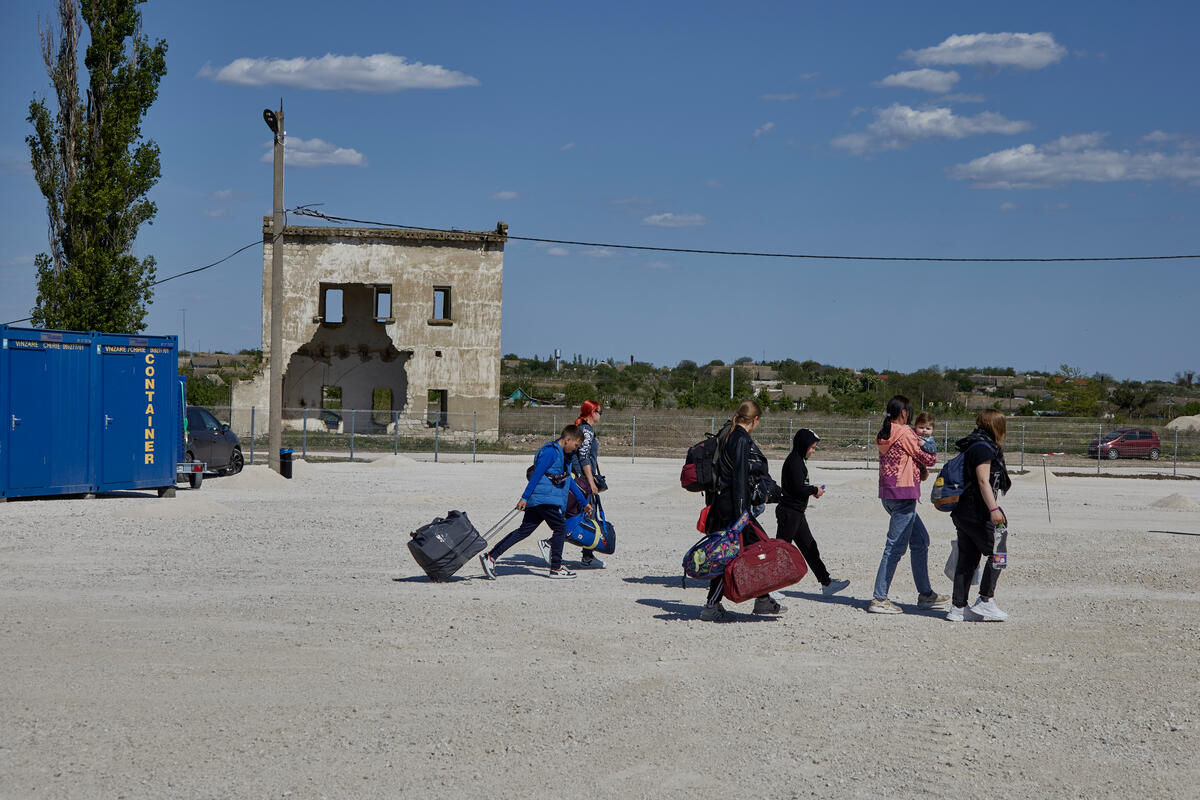UNHCR chief says it is "absolute nonsense" to blame refugees for terror
UNHCR chief says it is "absolute nonsense" to blame refugees for terror

PRESEVO, Serbia, Nov 17 (UNHCR) - UN High Commissioner for Refugees António Guterres said today it was "absolute nonsense" to try to blame refugees for terror attacks, stressing that they were its "first victims" and could not be held responsible for what happened in Paris, Beirut and elsewhere.
Speaking on a one-day visit to Serbia, Guterres urged European governments not to make any unilateral moves in the aftermath of recent attacks, but to find a united response in resolving the current crisis.
"It is not the refugee outflows that cause terrorism, it is terrorism, tyranny and war that create refugees," he emphasized as he toured the Presevo refugee reception centre on the border with the Former Yugoslav Republic of Macedonia.
"It is clear that the Daesh strategy is not only to set Europeans against refugees, but within Europe, to set citizen against citizen within communities, community against community within countries, and country against country in the Union."
Currently, Serbia is the first country on the so-called West Balkans route where nearly all those arriving are being registered and fingerprinted. Since the beginning of the year, 436,000 asylum seekers have been registered in Serbia, with Presevo being the main entry point.
"Serbia is teaching a lesson to some of the EU Member States, even though it is not a member itself," Guterres added, expressing his "deep, deep appreciation" to the Government and people of Serbia for the tolerant and welcoming way in which they keep receiving refugees.
In a statement to the media, High Commissioner Guterres reiterated his organisation's position that refugees and migrants should be screened as they enter the EU and then be redistributed in an orderly manner among member states.
Between 6,000-8,000 people are arriving in Presevo every day. After registration, they move on to Sid in the northwest of Serbia from where they proceed to Croatia and other countries.
Prime Minister Aleksandar Vucic repeated Serbia's pledge to leave its borders open and not to ring them with barbed wire.
Guterres talked to many of some 600 refugees present at the centre at the time of his visit and reassured them that everything was being done to prevent a human tragedy when winter temperatures set in, but warned tough times lay ahead for all.
Commenting on the fact that a passport of a person who had passed through Serbia had been left at one of the terror scenes in Paris, he warned that it was part of the terrorists strategy to stoke hostility towards refugees and increase pressure on European countries to seal borders.
"The passport was left to be seen, which means that the Daesh also has, as a strategy, to put the refugees in the spotlight … this is also designed to try to force Europe to close its borders," he told reporters. "So to try to blame the refugees is absolute nonsense."
He added that things would be "completely different if Europe would have an effective reception capacity at entry points or if there would be more legal ways for people to come. But unfortunately on these two things, Europe has failed completely and so the smugglers are the ones who run the show."
Guterres and Serbian Prime Minister Vucic also visited the buildings of a former tobacco factory, where Serbia is currently preparing winterized shelter with the support of UNHCR. They saw the offices where asylum seekers are registered and fingerprinted and visited the health center, refugee housing units developed by IKEA and UNHCR tents.
In October alone, 93.5 per cent of asylum seekers originated from the top five refugee-producing countries, including 53.5 per cent from Syria and 29.6 per cent from Afghanistan and 9.9 per cent from Iraq.
Since June 2015, the UN Refugee Agency delivered humanitarian aid at the value of US$3.1 million to Serbia. With increasing winterization efforts this amount should increase to US$8.7 million or close to one billion dinar until the end of the year.
Melita Sunjic, Presevo, Serbia


